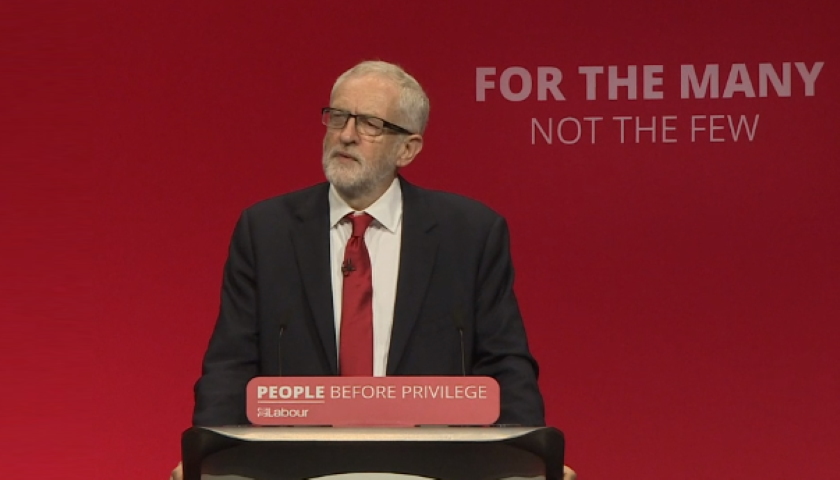Labour government would use compulsory licensing for expensive drugs

A Labour government would force pharma companies to make essential drugs available that are affordable by the NHS, according to party leader Jeremy Corbyn.
Speaking at the Labour Party Conference in Brighton, Corbyn launched the new Medicines for the Many policy with an attack on drug companies that he claims put shareholder profits before people’s lives and represent “capitalism at its very worst”.
A Labour government would make use of compulsory or 'Crown use' licenses to clear the way for drugmakers to make cheaper, generic copies of patented medicines.
“We’ll tell the drugs companies that if they want public research funding, then they’ll have to make their drugs affordable for all,” he said.
“And we will create a new, publicly owned generic drugs manufacturer to supply cheaper medicines to our NHS – saving our health service money, and saving lives.”
The unveiling of the policy came as Corbyn met nine-year-old cystic fibrosis patient Luis Walker, who has been unable to get access to CF therapy Orkambi (ivacaftor/lumacaftor) because its manufacturer – Vertex Pharma – has been unable to reach an agreement on pricing with the NHS.
Vertex recently agreed a deal with the Scottish government to make Orkambi available to patients, but it remains out of reach for CF patients in England and Wales, and there have been calls by parents to apply Crown use licensing to break the pricing impasse.
Luis’ mother Christine said that the situation with Orkambi “is not the first or the last time that excessive profits have been put above patients’ health, and with 7,000 rare diseases currently without an effective treatment or cure, our situation could be replicated many times over in the future if the government doesn't intervene now”.
The Association of the British Pharmaceutical Industry (ABPI) acknowledged the issue with Orkambi, but said compulsory licensing is not the answer.
“The situation with Orkambi is rare, but it is clearly unacceptable, and a solution needs to be found for patients and their families,” said ABPI executive director for commercial policy Dr Richard Torbett.
He argued that compulsory licensing would “completely undermine the system for developing new medicines”, as it would “send a hugely negative signal to British scientists and would discourage research in a country that wants to be a leader in innovation”.
Prof Mariana Mazzucato of the UCL Institute for Innovation and Public Purpose has a different take, saying that in the current system “the risks of innovation are socialised, while the benefits are privatised through dysfunctional uses of intellectual property rights, a financialised business model, and a pricing system that does not recognise taxpayer investment”.
The new policy also says that Labour will fight any attempt by the US government to undermine NHS drug price control mechanisms in future trade talks.
Labour’s new policy was launched on another turbulent day in UK politics, with the Supreme Court ruling that Prime Minister Boris Johnson’s decision to suspend parliament broke the law. The news prompted calls for his resignation from opposition MPs – with just over a month to go before the next no-deal deadline – and heightened the chances even further of an early general election.
Last week, medical and pharma leaders warned that contingency planning for a no-deal Brexit – such as laying on additional ferry capacity – is still not sufficient to guarantee there will be no medicines shortages after 31 October.
Corbyn was due to close the Labour Party conference with a speech on Wednesday, but brought it forward to Tuesday afternoon so he could return to Westminster. In his speech he called for Johnson to resign and pledged the government would be “held to account for what it has done”.
Other promises made by Corbyn at the conference included the abolition of prescription charges for medicines, free home-based care for the elderly , and a four-day working week within a decade.













